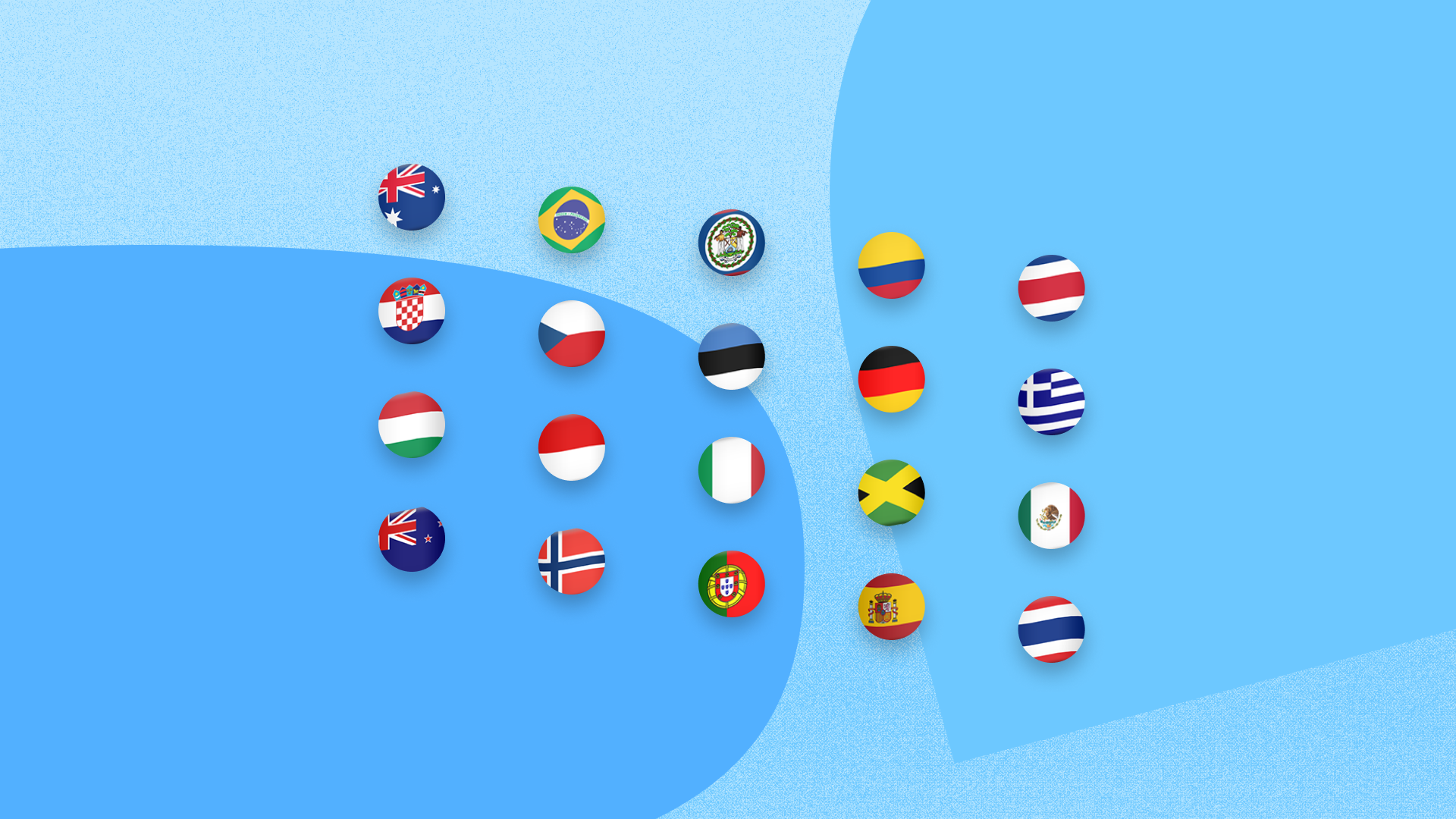Known for its mild climate and striking views, Portugal offers so much to explore, from cities like Lisbon and Porto to the many seaside destinations along the Iberian Peninsula. It’s no surprise that Portugal has become an increasingly popular place for remote workers to live, and that interest in the Portugal digital nomad visa has increased dramatically over the past few months.
As of October 30th, 2022, expats can petition the Portuguese government for a digital nomad visa. Foreigners who want to experience the Portuguese lifestyle (and excellent weather) will no longer need to go through a lengthy immigration process. Before this new legislation passed, expats who wanted to work remotely in Portugal needed to apply for the D7 visa, which was mainly for foreigners wanting to retire.
Who will be able to apply for the visa?
The new digital nomad visa in Portugal is specifically for foreigners that live outside of the EU Schengen/the EEA (European Economic Area), and for British citizens post-Brexit who are no longer residents of the European Union (EU).
What makes this visa different from the D7 visa, is that the Portuguese digital nomad visa is specifically for remote workers living outside of the EU Schengen area/the EEA.
What are the requirements for a Portugal digital nomad visa?
To apply for a digital nomad visa in Portugal, you need to work remotely, and also be employed by a foreign company.
To apply for a digital nomad visa in Portugal, you will need to complete the following:
Provide proof of an employment contract with your current company.
Have been with a stable employee for at least 12 months.
Provide proof of permanent tax residence, usually through a rental agreement.
Complete formal authorization letter from your employer that gives you permission to live and work within the country for the company remotely.
Prove that you make four times the Portuguese monthly minimum wage at 2,820 euros, deposited into a Portuguese bank account. What makes the new digital nomad visa different from the current D7 visa is the amount of monthly income the applicant will have to prove.
If possible, show some sort of additional passive income, including real estate, trust, and royalties. This can help make your application successful.
Provide a clean criminal record and background check (for security reasons) from your country of origin to be considered for a digital nomad visa in Portugal. This was a standard part of the application for the D7 visa.
Provide proof of accommodation (address) of where you plan to stay for the duration of your visa).
Schedule an appointment and submit your application for this new visa at either your Portuguese consulate in your home country, or, if you’re already in Portugal, at an SEF (the Foreign Borders Office).
The Portuguese government may add or remove requirements as the country transitions from having remote workers applying for the D7 visa to this new digital nomad visa. Without providing a clean criminal record, proof of income, proof of employment contract, and other required documents, you will not meet the correct qualifications for this temporary residence visa.
Income taxes for digital nomads in Portugal
Although you’ll still be working for a company based in your home country, you will be required to pay Portuguese income tax. Your tax residency will still depend entirely on your country of origin.
How long will the digital nomad visa be valid?
Right now, there are two different types of digital nomad visas that you can apply for:
Short stay (temporary residence visa)
Residency visa/permit
The short stay digital nomad visa allows you to live and work in the country for up to 12 months, with the option to renew every year for an additional two years. Without a visa, you can remain in Portugal for 90 continuous days (or six months in one year).
If you plan to stay in Portuguese for longer than two years, you should indicate in your initial application that you want to apply for a digital nomad visa, with the option to eventually apply for a permanent residency permit. This option will allow you to live and stay in Portugal permanently.
How Justworks Can Help
Justworks’ global EOR is the solution for small businesses looking to easily hire talent in countries where they don’t already have a legal presence.
Justworks has direct entities in 11 countries, with the ability to hire in 100+ additional countries upon request through our trusted local partners. You can fearlessly handle HR essentials like payroll, benefits, local compliance, and more.
Learn more about our EOR services, and get started today!
FAQ
Can you get a digital nomad visa in Portugal?
Yes, you can get a digital nomad visa, as it was made legal in October of 2022. You will need to prove that you make four times the monthly minimum wage, have had a stable remote job for one year, and provide an updated Portuguese address.
How do I become a digital nomad in Portugal?
To become a digital nomad in Portugal you can apply at a Portuguese consulate in your home country or at the Foreign Borders Office in Portugal. You will need to prove that you make four times the monthly minimum wage, that you have had a stable remote job in a foreign country for at least one year, and proof of accommodation in Portugal.
Do digital nomads pay tax in Portugal?
Yes, digital nomads in Portugal are subject to paying regular income tax on their earnings even while working for a foreign company.
Can I move to Portugal with a remote job?
Yes, as of October 30th 2022, the Portuguese government introduced a new visa type that allows foreign workers with a remote job to apply to live in the country. You need to meet all of the application criteria and live outside of the EU or the EEA (European Economic Area). Most residents in other European countries can move to Portugal seamlessly.
Ukrainian workers can use the Serviço de Estrangeiros e Fronteiras online platform if they are interested in moving to Portugal.
Who qualifies for a Golden Visa in Portugal?
Anyone who has significant market investments in Portugal qualifies for a Golden Visa. These investments can be in real estate, capital investments, or creating employment. Qualifying for this visa allows you to be fast tracked for a permanent residence visa in Portugal in as little as five years.
Learn more with Justworks’ Resources
Scale your business and build your team — no matter which way it grows. Access the tools, perks, and resources to help you stay compliant and grow in all 50 states.






